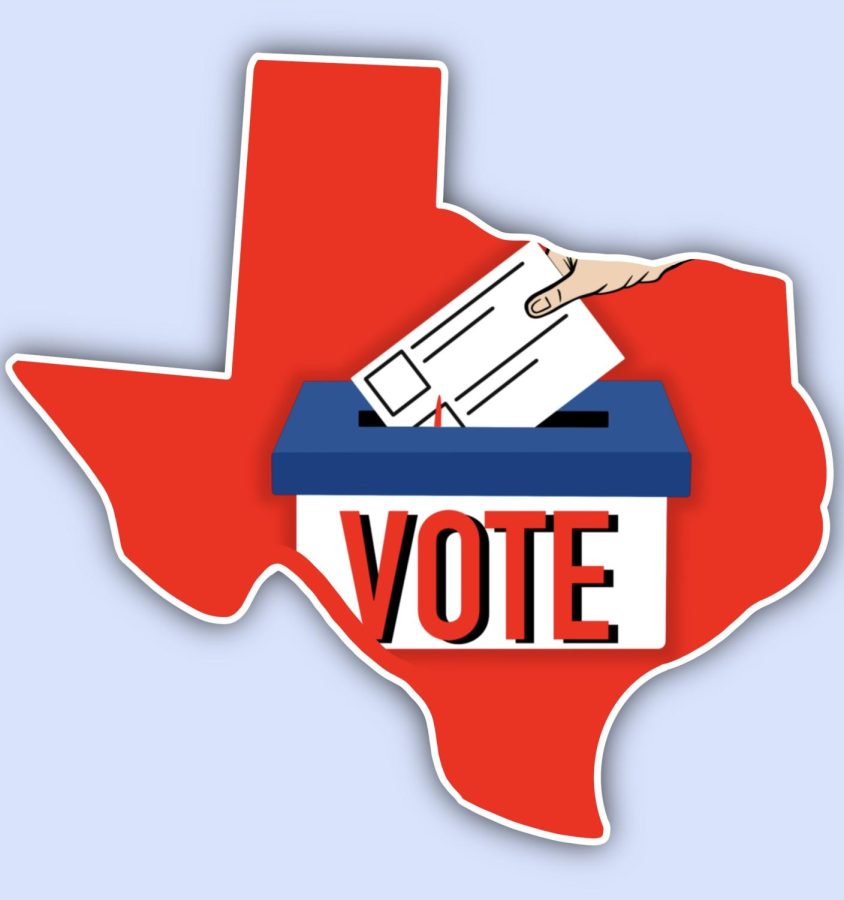Texas primaries for the 2022 general election scheduled for March 1st
January 25, 2022
Texas will be holding its 2022 primary elections on Tuesday, March 1. The primary elections will determine each party’s candidates for the November general elections. Offices that are up for election include the state’s top executive positions, such as governor, lieutenant governor and attorney general, as well as the state’s House and Senate seats.
While the primary elections will be held in March, the last day to register to vote for the state primaries is Monday, Jan. 31. A voter registration application must be filled out and sent to the concerned county election office to register to vote. There are multiple ways to register, including mailing a completed application to the county election office.
Early voting for the primaries will begin on Monday, Feb. 14, and continue until Friday, Feb. 25. The last day to apply for a mail-in ballot is Friday, Feb. 18. Mail-in ballots will be due on election day.
Incumbent governor Greg Abbott will be running for re-election, as will other executive office incumbents, including lieutenant governor Dan Patrick, attorney general Ken Paxton, agriculture commissioner Sid Miller and comptroller Glenn Hegar. Incumbent land commissioner George P. Bush will be seeking the Republican party’s nomination for attorney general, leaving the office of land commissioner open.
All Republican incumbents for executive office face competition from other party candidates. The same is true for candidates seeking the Democratic Party’s nominations.
The most notable competition to the state’s Republican incumbents comes from former U.S. Representative Beto O’Rourke, who is seeking the Democratic Party’s nomination for the state’s governor.
Each party’s nominees will face-off in the state’s November general elections.
The 2022 primary elections will be the first time Texans will be voting after the state’s redistricting process last year, which caused a lot of controversy for favoring the Republican party at the expense of voters of color.
In a recent event about voting hosted by the Texas Tribune via Twitter Spaces, Alexa Ura, associate editor and demographics reporter for the Tribune, explained that the 2022 election cycle also marks the first time that the Texas redistricting process did not undergo federal oversight. Ura noted that several aspects of voting have been impacted in the state due to the passage of SB1 last fall.
“This is the first cycle in which Texas lawmakers were able to redraw these maps without first showing them to the federal government or to a federal court to ensure that they didn’t harm voters of color,” Ura said. “A lot of the changes that lawmakers made to the voting process were about regulating what counties can do … the behind the scenes mechanics of voting as opposed to the actual experience of voting. That’s not to say that won’t have effects on the voting process.”
This lack of oversight results from the 2013 Supreme Court decision, which declared that states like Texas did not have to seek federal approval for any change in elections laws or redistricting, a process previously mandated by the Civil Rights Act of 1965.
New laws for voter identification that apply to mail-in ballots are also already in effect after the passage of SB1. The new laws require that anyone applying for a mail-in ballot enter either their partial Social Security number or driver’s license number as a form of identification. However, the entered information must match the identification provided in the individual’s voter registration. NPR reports that this change in voter ID laws has caused the rejection of several applications to vote by mail.
According to Ura, the state’s recent election laws also prevent counties from sending unsolicited mail-in ballot applications to citizens and limit election assistance. Any individual eligible to vote by mail must request their ballot.
“I think in terms of the actual process of voting, Texas still has some of the strictest rules in the country,” Ura noted about the state’s overall election scene. “I don’t think it’s good to overgeneralize that voting is easy … there are several pitfalls that voters can fall into in Texas.”









